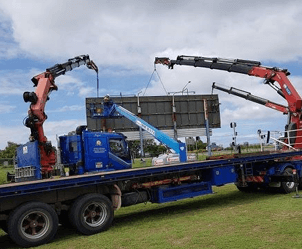Truck transportation is crucial for transferring commodities over various terrains and distances in the current global economy. The seamless delivery of goods from manufacturers to customers is now made possible by the development of this method of transportation into a sophisticated and essential component of supply chain management.
The Logistics Sector’s Backbone
Around the world, truck transportation is the foundation of logistical operations. It is a flexible and adaptive solution that satisfies the unique requirements of companies across various industries. Trucks can carry a variety of cargo types, from perishable goods to bulk commodities, making them a top option for businesses looking for effective transportation options.
Accessibility and Variability
The adaptability and accessibility of truck transport is one of its main benefits. Trucks can access places that other types of transportation might find difficult, such as distant areas or construction sites. This accessibility makes it possible to deliver commodities right where needed, requiring fewer transfers and handling operations overall.
Reliable and On-Time Deliveries
Relational and timely deliveries are crucial in today’s fast-paced corporate environment. Truck transportation excels at satisfying these requirements. Trucks can adhere to constrained delivery windows thanks to well-established road networks and effective scheduling, ensuring that goods arrive at their destinations on time. Maintaining customer satisfaction and avoiding supply chain interruptions depend heavily on this reliability.
Cost-Saving Approach
Both short- and long-distance transportation demands can be met with truck transport at a reasonable price. Trucks can travel on existing road networks, unlike other types of transportation that could need complicated infrastructure or large investments. Businesses can save money due to the reduced extra handling and transfers requirement.
Customized Services
Truck transportation offers tailored services designed to meet certain corporate needs. Companies can select between less-than-truckload (LTL) and full-truckload (FTL) shipments depending on the volume of their goods and their financial constraints. Customized vehicles with refrigeration, flatbeds, or the capability to handle hazardous materials can also be used to meet specific cargo requirements.
Environment-Related Issues
The transportation business is reducing its environmental impact as sustainability gains popularity. Numerous businesses are investing in fuel-efficient vehicles, switching to alternative fuels, and implementing green initiatives. The reduction of carbon emissions and the promotion of eco-friendly transportation are made possible by the optimization of delivery routes and the application of smart technologies.
Technological Progress
The use of trucks is not exempt from technological improvements. Accurately tracking shipments is possible by combining GPS tracking systems, telematics, and real-time monitoring. This increased openness improves supply chain visibility and enables proactive adjustments to route changes or delays.
Conclusion
Truck transportation is still a crucial component of effective logistics strategies because it acts as the artery that links far-flung companies and customers. It is an essential part of contemporary supply chain management because of its adaptation to shifting demands, accessibility, reliability, and flexibility. Truck machinery transport is prepared to embrace technology, sustainability, and innovation as industries change, assuring its continued relevance in the always-shifting context of international trade.

